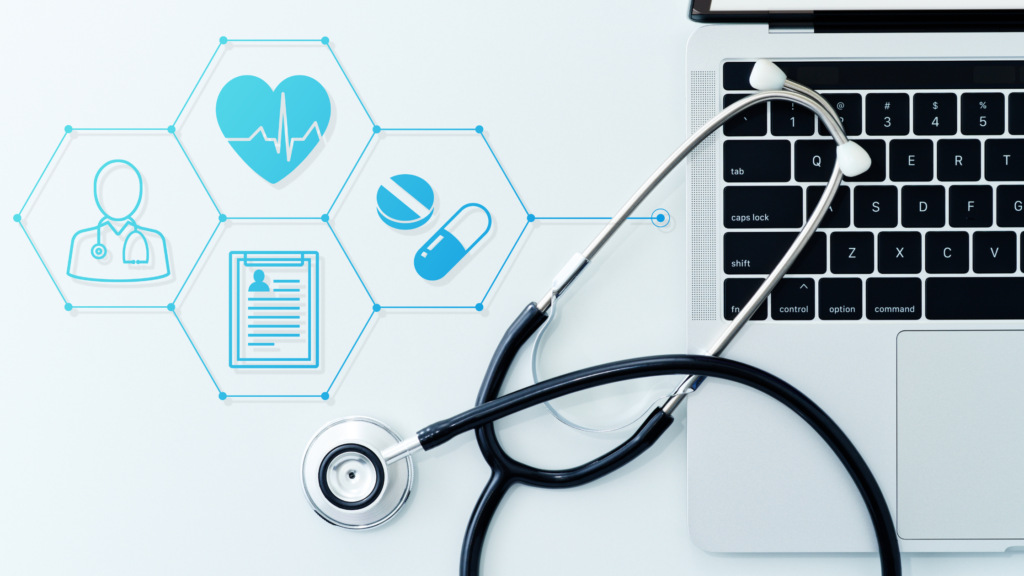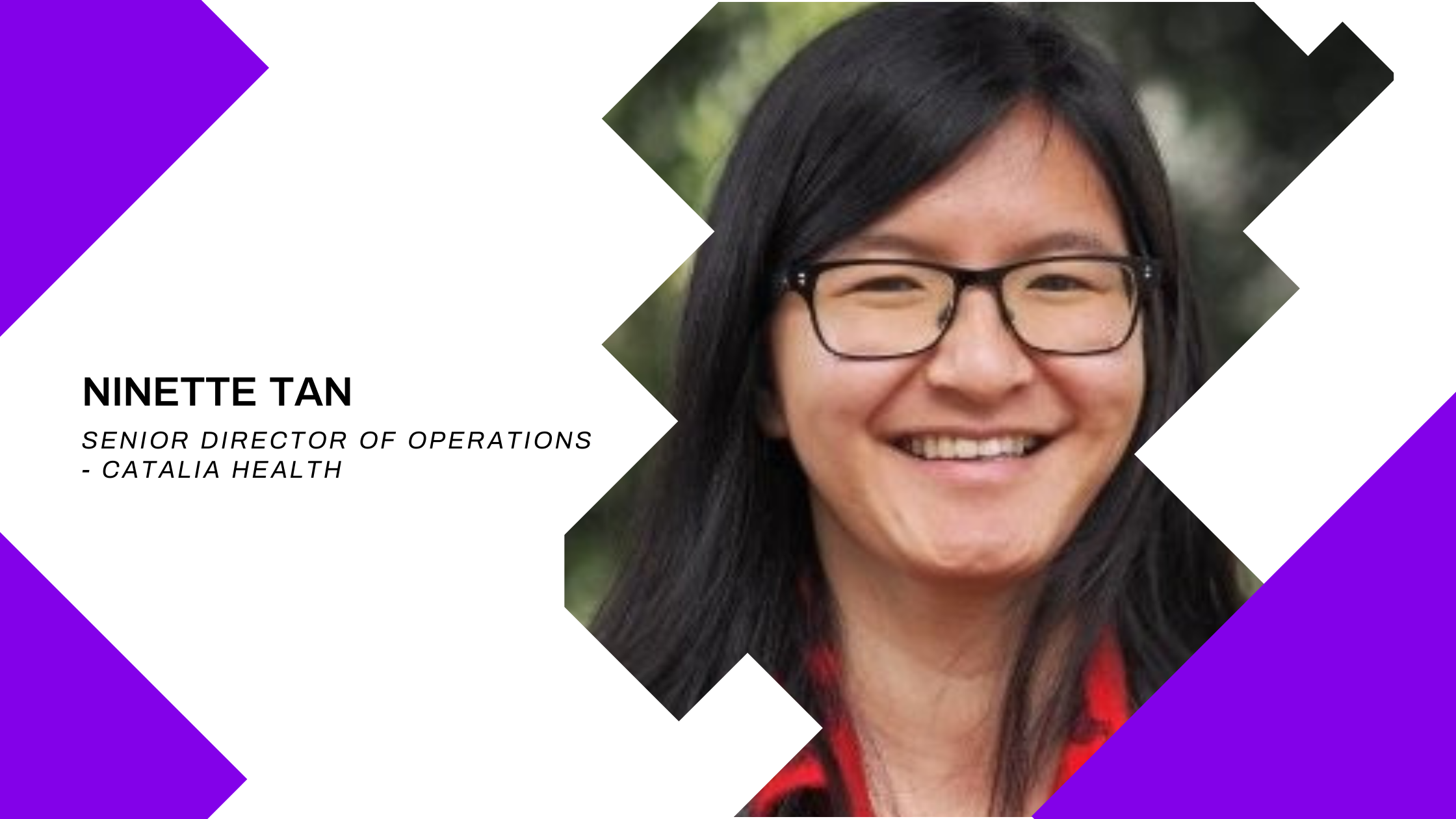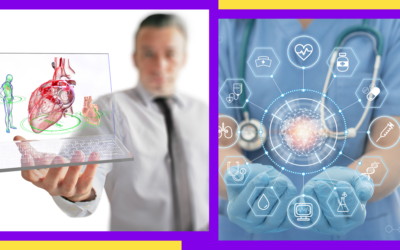Since the pandemic started and health technology got the spotlight, many more nurses are interested in a career in Nursing Informatics. However, a lot of nurses are not quite sure what it is or what Informatics Nurses do.
A decade ago, as I considered my career, I was fortunate to have several Informatics Nurses to speak to. But not everyone has that luxury.
This is a new series on Writing the Future of Health where we will interview practicing Informatics Nurses. We will learn about what they do, how they made the transition into a health technology career, and any lessons for nurses considering the switch.
Our first Informatics Nurse is Ninette Tan of Catalia Health. Thank you, Ninette!
What is your current job title and company?
I am the Senior Director of Operations at Catalia Health.
How would you describe your role?
I am responsible for implementing and reporting on the success of our program and maintaining distribution channels for our AI robot coach, Mabu. I am also the Chair of Catalia Health’s Culture Committee and a subject matter expert on our Clinical team.
What is your typical day like?
When I first wake up, I take 15 minutes to myself avoiding any devices, including my phone. It’s my “me” time before I prepare to take on the challenges of the day. Sometimes I meditate, and sometimes I say a short prayer.
Once my work day starts around 9 AM, I check the triaging queue for tickets from patients who are experiencing issues. The issues are assigned out to each appropriate next level of care similar to a patient’s experience at a healthcare visit.
We have a physical robot so that can mean anything from troubleshooting a software or connectivity issue to hardware issues. One unique hat I’ve had to wear is mechanical engineering. I know how to fix common mechanical failures like if her blinking animation is off or if one of the motors is not working properly.

The rest of my day consists of meetings with the engineering team, clinical team, and product team to ensure processes are running smoothly on ongoing projects. One of the projects my team is currently working on is a COVID-19 education pilot for patients who have heart failure.
I usually end my day reviewing and preparing for any meetings I have the next day or getting pulled into last minute meetings.
Can you tell me a bit about your career background before this role?
Sure, I am an RN and PHN. My early nursing career consisted of bedside nursing on an acute rehab floor in a hospital and home health coordination for Coram/CVS Specialty Pharmacy. I have spent almost a decade of my career doing what I love, which is working at the intersection of healthcare and technology.
Prior to this role, I served as the Health Communications Team lead for a healthcare app called Better. I led a team of clinicians and support staff on triaging the needs of people who had qualifying life events such as moving or having a baby.
During my time in this role I trained healthcare service navigators on assisting patients with signing up for insurance, including Covered California when it first started, finding a healthcare provider, and dealing with medical bills. What our app accomplished was to make a case management and social work team available on a mobile chat platform where they could speak to someone 24/7.

What made you want to get into health technology?
As a bedside nurse, I learned early on that timely education and followup was the key to a successful discharge. I was also the go-to person for any computer program issues on my floor, and the thought of getting licensed as a nurse informaticist has crossed my mind a number of times.
As I was looking for the solution for patients to receive timely education and follow up care, I stumbled upon Rock Health.
How did you make the transition from nursing to health technology?
At the time, Rock Health was an incubator for early stage healthcare companies, and unbeknownst to them, it would become the biggest influence in my career change from bedside nursing to health technology.
Rock Health piqued my interest, and I saw they were looking for user testers for a new health technology company. “User testing” was new vocabulary for me as a nurse, since I didn’t learn about the UX field in nursing school. I signed up for the user testing session and became interested in the technique the team used to collect feedback on a prototype.
What made this particular session unique, was the discovery of technology tools patients may use outside the hospital. After the session, I focused my efforts on forming connections with members of Rock Health who later helped me obtain my first full time position at an early stage health technology company.
What was the biggest thing you had to learn when you started working in health technology?
It’s important early on to be self aware and know how to communicate your limitations. Changing my career from working within teams of various clinician specialties to working within teams of all kinds of non-clinical backgrounds has been the biggest challenge.
I realized it was in my best interest, and the team’s, to learn as much as I could, including how they defined success and failure.
One of the best things about joining an early stage health technology company is the opportunity to grow and develop skills in different specialties with team members who are just as invested as you are in your learning and development. I compare it to taking a language course. Instead of taking courses in Spanish, French, Chinese or Italian I took courses in Content, Engineering (hardware and software which are different), UX, and Product.

What do you like most about your career now?
With the sudden increase of patients being confined to their homes during a pandemic, the technology my team is building has a larger impact in supporting at risk patient populations with medication adherence.
Patients have found it particularly challenging to connect with their doctors to obtain prescriptions and refills. Our unique robot interface has been successful in maintaining patient medication adherence, even through this challenging time.
Do you ever miss bedside nursing?
Whenever someone asks me this question, I tell them I miss the relationships I formed with patients at the bedside. I often tell people it was such a privilege and honor to be part of someone’s journey in healing when they were in the hospital.
Being a patient is an incredibly vulnerable position, and I am always grateful that patients trusted me with their care. Their susceptibility to worse outcomes due to poor education and followup after discharge is what pushed me to explore other avenues of care like health technology.
I am a firm believer that patients heal better at home and not in the hospital, and wanted to make sure they stayed home once discharged.
What advice do have for nurses thinking about careers in health technology?
A decade ago, when I was considering my biggest career shift into health technology, I had only seen small signals that healthcare was changing and moving toward technology platforms.
Today, as we are staying mainly at home through a pandemic, it has become the catalyst for healthcare to move online and bring telemedicine to the forefront. I am more convinced than ever that nurses who are interested in health technology should at least try to understand the role healthcare phone apps and telehealth play in a patient’s life.
For patients with chronic conditions and complex medical treatments, a healthcare technology application can make the difference in their quality of life. Health technology allows these patients to spend less time in the clinic and hospital and spend more time at home with their families by making symptom tracking and communication with their care team more convenient.
Health technology applications try to solve the same problems nurse case managers and social workers do: access to care, education deficits, and financial burdens, with the goal of keeping patients out of the hospital. The difference is health technology does so by either providing quicker access to clinicians or assists in processing of medical information like insurance claims.
Nurses also utilize two important skills of empathy and active listening. These are two skills that I have seen help other clinicians grow when transitioning from bedside to health technology.






As someone who is going into nursing, this was a very informative article for me to read. I had no idea there was such a thing as an informatic nurse, or even nursing careers in healthcare technology at all. I can definitely see health care technology playing a big role in the upcoming years so it would be really cool to learn more about it. Although this isn’t necessarily the path I want to take as a nurse, I think that everyone should be aware of it, and it should probably be a part of training for future nurses. And who knows? I might switch what I want to do, just like Ninette Tan!
So glad this was helpful, Amanda! And I completely agree – Nursing Informatics should be part of the training for future nurses. Nurses should at least know it is an option. Ninette is a great example of how nurses have so many career options and can do very interesting things.